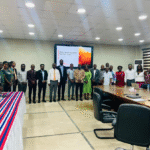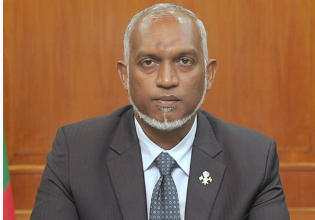By Patrice Katuma
LUSAKA, Zambia – Nearly three months after President Hakainde Hichilema signed the Cyber Security and Cyber Crimes Acts of 2025 into law, Zambia is grappling with a contentious debate: are the new regulations a necessary shield against online threats or a concerning tool to stifle freedom of expression?
While government leaders champion the laws as a critical measure to protect citizens from rampant online scams and identity theft, human rights organizations and legal experts vociferously argue that certain provisions are undemocratic and threaten fundamental freedoms.
The new legislation, enacted on April 8, places the Zambia Cyber Security Agency directly under the Office of the President, shifting it from its previous independent status. Crucially, it grants the state broad powers to intercept and surveil all electronic communications, including calls, emails, messages, and streamed content. Violations carry severe penalties, ranging from hefty fines to lengthy prison sentences of two to 25 years, and even allow for the extradition of Zambians abroad.
Zambia’s Minister of Foreign Affairs and International Cooperation, Mulambo Haimbe, has sought to allay fears, asserting that the laws are not designed for arbitrary intrusion into personal details. “This conception that the cyber laws are perhaps meant to intrude, to go into your personal details in a willy-nilly fashion is not correct,” Haimbe told journalists in Lusaka, emphasizing the intent to combat digital crime, not to breach privacy. Oliver Shalala Sepiso, a media consultant for the ruling United Party for National Development (UPND), echoed this sentiment, framing the laws as solely for digital and data protection.
Despite these assurances, the laws’ passage received surprisingly little fanfare domestically. Many Zambians reportedly learned of the new rules primarily through an alert issued by the United States Embassy in Lusaka, which warned its citizens about the legislation’s intrusive nature.
Critics contend that while cyber legislation is needed to combat crimes like identity theft and online fraud, the current framework is overly broad. Richard Mulonga, CEO of Bloggers of Zambia, acknowledged the necessity of combating cybercrimes but told DW, “There are some provisions that have the potential to restrict free expression, for example assembly and association, and just broader digital rights.”
The Law Association of Zambia (LAZ) has expressed strong opposition, with President Lungisani Zulu stating the association plans to challenge the law in court. “Numerous provisions of the Act, which is now law, infringe upon the rights and freedoms of citizens, hinder a free press, and have the potential to undermine the cherished democracy in our country,” Zulu warned.
The new laws replaced the Cyber Security and Cyber Crimes Act of 2021, under which the Zambia Police arrested Mbewe Sibajene in April 2024 for circulating satirical memes and videos mocking government officials. Police deemed the content “abusive, defamatory, and aimed at inciting public disorder.” Among the most contentious provisions are those criminalizing “false information,” vague definitions of “indecent content,” and a notable lack of protection for journalists reporting on sensitive national issues.
Media watchdogs report an immediate chilling effect on journalism. Kennedy Mbulo, vice chairperson of MISA Zambia, a regional media watchdog, told DW that journalists are now “living in fear because whenever they are doing their stories, they need to now do self-censorship.” He added that the laws have severely impacted investigative journalism, making it risky to record individuals for fear it could be used as evidence against them.
Tech-savvy young Zambians themselves are divided on the implications. Kellys Mushota, a youth member of Zambia’s Congress of Trade Unions and a frequent social media user, observed a dual impact: “The enactment of this law has seen some reduction in the number of harassment or even the way of harassment social media users engage in. However, there has also been a reduction of the will by people to speak freely on matters such as governance and politics.”
Meanwhile, Joshua Seke, a 22-year-old researcher based in Kitwe, voiced a common concern among youth about privacy: “If you look at what young people are saying online, does it mean that now I can’t laugh with my girl online? Is the government actually going to read everything that we do?”
Conversely, some citizens believe the laws will foster a more responsible online environment. Mary Ndau, a 31-year-old Lusaka resident, expressed optimism, telling DW, “People will be doing the right thing online, they will not express bad behaviors or bully others online because they will be subjected to the law.”
As Zambian authorities prepare to implement the full scope of the Cyber Security and Cyber Crimes Acts of 2025, the underlying tension between national security and individual liberty promises to remain a defining feature of the country’s digital landscape.









